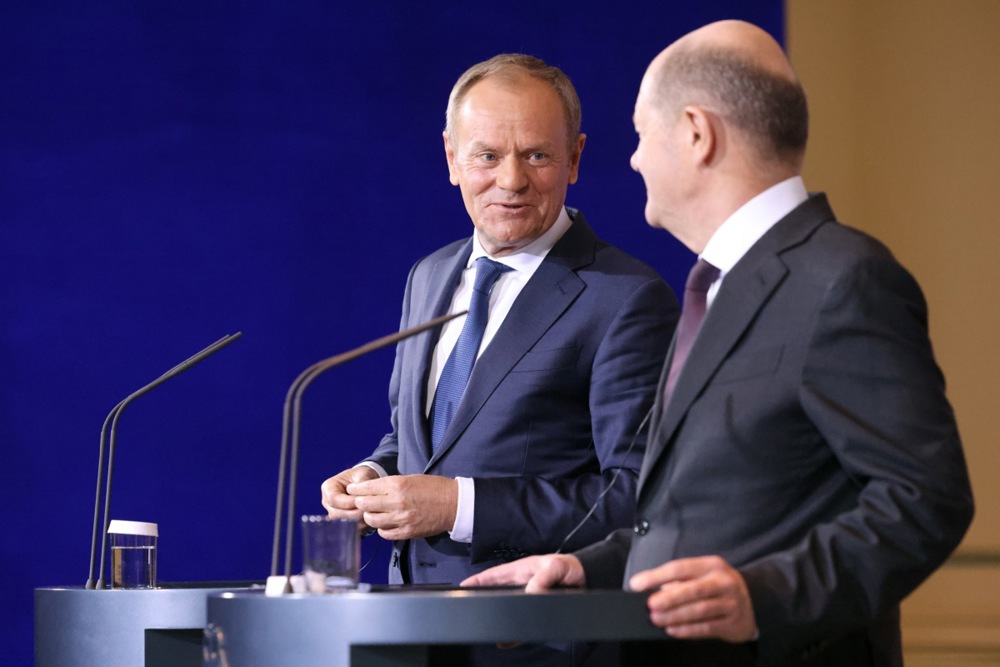Polish Prime Minister Donald Tusk met German Chancellor Olaf Scholz and declared that although Germany has a moral obligation to “do something,” he did not want Polish losses during the Second World War to cause hostility between the two nations.
Tusk visited both Macron and Scholz on Monday, and at a joint press conference in Berlin with his German counterpart, the Polish prime minister answered questions on the issue of reparations for Second World War damages for Poland, with a report from the previous conservative government estimating these losses at $1.3 trillion.
The Polish prime minister argued that the term “reparations” did not appear in the diplomatic note issued by the former Conservative (PiS) government. The term used was “compensation,” the level of which was to be determined by research carried out by the Polish side.
However, Tusk indicated he wanted to move on, saying let us “look towards the future,” admitting that “in a formal, legal and international sense, the issue of reparations was closed many years ago.” He was referring to the fact that a puppet communist government in Poland had waived Polish reparation rights in favor of the USSR.
He added that the issue of moral, financial and material compensation was never realized, but that this was not his or Scholz’s fault. He said that “unlike my predecessors, I will attempt to find forms of cooperation with Chancellor Scholz that will ensure this subject will not poison relations between our two countries.” He further added that “Germany has some ground to make up here” to ensure good relations with Poland.
Tusk assured that he would not be using this narrative in an aggressive manner because he did not want history or his native origins as a Pole from Gdańsk to be an obstacle in delivering ideas for future cooperation and security that would be beneficial to both nations.
Tusk’s remarks were enigmatic. He did not abandon the compensation claim, but he qualified it in such a way as to signal that this was not a priority for his government. It is hard to see how this can be read by the Germans in any other way than as a retreat on the issue.






